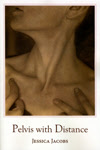 |
| Photo Credit: Kathryn Hurston. |
After reading a poem by Chilean poet Nicanor Parra—in which he instructs the reader to:
compose a sonnet
that begins with the following iambic pentameter line:
I would prefer to die ahead of you
that begins with the following iambic pentameter line:
I would prefer to die ahead of you
and that ends with the following:
I would prefer that you be first to die
—I took the challenge quite literally and did so. People are full of contradictions—we live one way and idealize another, we say one thing, but do another—and it is inherent in the way we question and interpret our world.
Framing a poem between two contradictory statements is a generative exercise that allows the writer new ways of arriving at places and conclusions that may not have been reached otherwise. Basically, it allows us the possibility and privilege of surprising ourselves.
Try starting with one statement that sounds agreeable or mostly true and then try to end on a statement that refutes it. Whether it's a sonnet or not is up to you, the most important part is finding the road between point A and point B.
Lucian Mattison's full-length collection, Peregrine Nation, won the 2014 Dogfish Head Poetry Prize from The Broadkill River Press. His poems appear or are forthcoming in The Adroit Journal, Barrelhouse, Four Way Review, Hobart, Muzzle, Nashville Review, and elsewhere online and in print. His fiction is soon to appear in Fiddleblack and Per Contra. He is an associate editor for Big Lucks. To read more, visit lucianmattison.com.
I would prefer that you be first to die
—I took the challenge quite literally and did so. People are full of contradictions—we live one way and idealize another, we say one thing, but do another—and it is inherent in the way we question and interpret our world.
Framing a poem between two contradictory statements is a generative exercise that allows the writer new ways of arriving at places and conclusions that may not have been reached otherwise. Basically, it allows us the possibility and privilege of surprising ourselves.
Try starting with one statement that sounds agreeable or mostly true and then try to end on a statement that refutes it. Whether it's a sonnet or not is up to you, the most important part is finding the road between point A and point B.
Lucian Mattison's full-length collection, Peregrine Nation, won the 2014 Dogfish Head Poetry Prize from The Broadkill River Press. His poems appear or are forthcoming in The Adroit Journal, Barrelhouse, Four Way Review, Hobart, Muzzle, Nashville Review, and elsewhere online and in print. His fiction is soon to appear in Fiddleblack and Per Contra. He is an associate editor for Big Lucks. To read more, visit lucianmattison.com.


























































